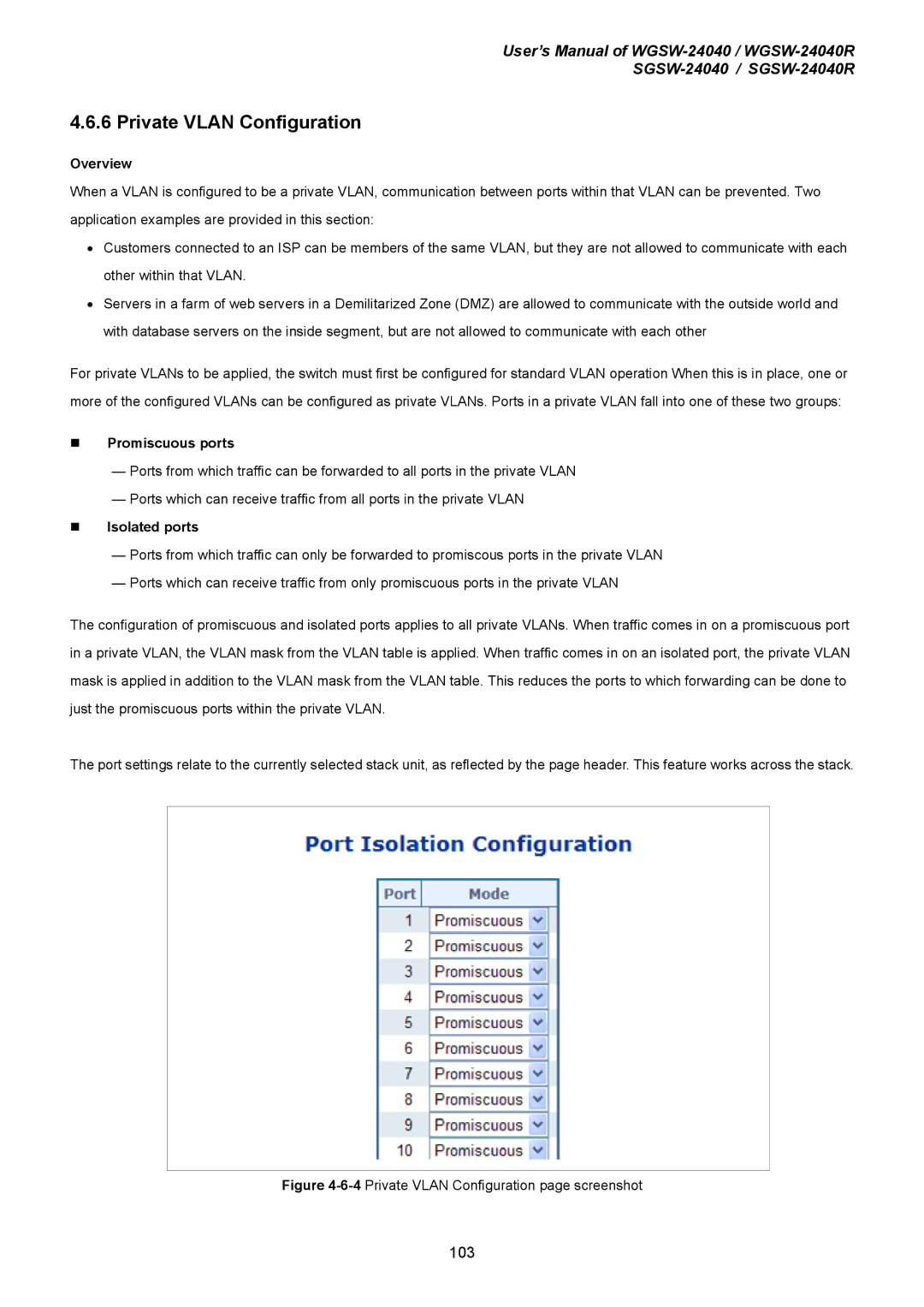
User’s Manual of
4.6.6 Private VLAN Configuration
Overview
When a VLAN is configured to be a private VLAN, communication between ports within that VLAN can be prevented. Two application examples are provided in this section:
•Customers connected to an ISP can be members of the same VLAN, but they are not allowed to communicate with each other within that VLAN.
•Servers in a farm of web servers in a Demilitarized Zone (DMZ) are allowed to communicate with the outside world and with database servers on the inside segment, but are not allowed to communicate with each other
For private VLANs to be applied, the switch must first be configured for standard VLAN operation When this is in place, one or more of the configured VLANs can be configured as private VLANs. Ports in a private VLAN fall into one of these two groups:
Promiscuous ports
—Ports from which traffic can be forwarded to all ports in the private VLAN
—Ports which can receive traffic from all ports in the private VLAN
Isolated ports
—Ports from which traffic can only be forwarded to promiscous ports in the private VLAN
—Ports which can receive traffic from only promiscuous ports in the private VLAN
The configuration of promiscuous and isolated ports applies to all private VLANs. When traffic comes in on a promiscuous port in a private VLAN, the VLAN mask from the VLAN table is applied. When traffic comes in on an isolated port, the private VLAN mask is applied in addition to the VLAN mask from the VLAN table. This reduces the ports to which forwarding can be done to just the promiscuous ports within the private VLAN.
The port settings relate to the currently selected stack unit, as reflected by the page header. This feature works across the stack.
Figure 4-6-4 Private VLAN Configuration page screenshot
103
